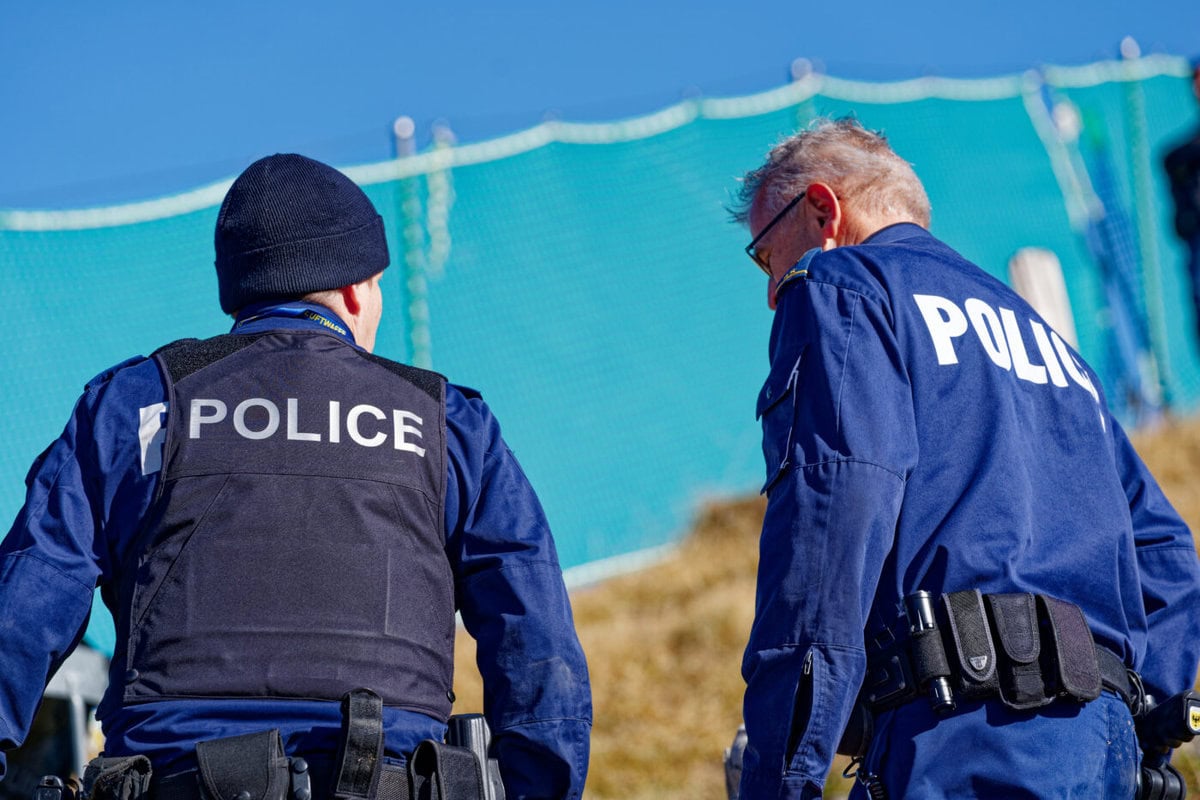Federal Council declares "exceptional situation" and tightens measures on Corona
In an extraordinary meeting today, March 16, 2020, the Federal Council further tightened the measures to protect the population. It now classifies the situation in Switzerland as an "extraordinary situation" according to the Epidemics Act. All stores, restaurants, bars and entertainment and leisure establishments will be closed until April 19, 2020. Food stores and health care facilities, among others, are exempt. It also introduces controls from midnight on the borders with Germany, Austria and France. To support the cantons in hospitals, logistics and security, the Federal Council has authorized the deployment of up to 8,000 army personnel.

In view of the accelerated spread of the coronavirus, the Federal Council is tightening up measures to Protection of the population further. It reclassifies the situation in Switzerland as an exceptional situation under the Epidemics Act. It allows the Federal Council to order uniform measures in all cantons. Before doing so, it has informed the cantons about this step.
Public and private events are banned from midnight tonight. All stores, markets, restaurants, bars and entertainment and leisure establishments such as museums, libraries, cinemas, concert halls and theaters, sports centers, swimming pools and ski resorts will be closed. Likewise, establishments where keeping a distance is not possible, such as hairdressing salons or beauty salons, will be closed.
The supply of food, medicines and goods for daily use is ensured for the entire population, and sufficient stocks have been built up. Grocery stores, take-aways, company canteens, meal delivery services and pharmacies remain open, as do gas stations, train stations, banks, post offices, hotels, public administration and social services. Workshops for means of transportation, may also remain open. All these establishments must comply with the recommendations of the Federal Office of Public Health on the Keep distance and adhere to hygiene.
Hospitals, clinics and doctors' offices remain open, but must refrain from medical procedures and therapies that are not urgently indicated. People who are particularly at risk do their work at home. If this is not possible, they are given leave by their employer. They continue to receive their wages.
In the amended ordinance on measures to combat the coronavirus, the Federal Council now also regulates the issue of daycare centers. For children who cannot be cared for privately, the cantons must provide the necessary care services. Daycare centers may only be closed if other suitable care options are available. This measure will initially apply until April 19, 2020, as will the new school closures.
The Federal Council also calls on the population to avoid all unnecessary contact, to keep their distance and to follow hygiene measures. It also calls on the elderly population in particular to stay at home.
Up to 8000 army personnel for healthcare, logistics and security
The Federal Council assumes that the demand of civilian authorities for assistance by the army will increase markedly in the coming days and weeks. In order to meet the requests of the cantons, the Federal Council is increasing the upper limit for the assistance service from 800 to 8000 members of the armed forces. This will apply until the end of June 2020.
Firstly, the armed forces should support the health service with medical services, in particular with nursing, patient monitoring, medical transports or hospital logistics (e.g. bed disinfection, kitchen, laundry, cleaning). Secondly, the armed forces are to perform logistical tasks as required, such as transports and assistance in setting up improvised infrastructure take over. Thirdly, it is to relieve the cantonal police corps in the security sector, for example by providing greater support in embassy protection, or by supporting the Border Guard Corps at national borders and airports.
Around 3000 army personnel are available for medical support. These will be made available immediately. How many members of the armed forces are deployed depends on the development of the situation and the requests of the competent authorities.
Mobilization of militia formations with high readiness
First to be deployed will be those units that are on regular troop duty. Recruit schools, through-servicemen and refresher courses will be extended where necessary. In certain areas, additional troops will have to be mobilized. This applies in particular to members of the armed forces from militia formations with a high level of readiness. These formations include all four hospital battalions and five medical companies. They can be deployed within four days of the decision to mobilize. The triggering will take place today.
In order to be able to react to further developments in the situation in a timely and adequate manner, the Federal Council has also authorized the DDPS to call up troops that are not part of the militia formations with a high level of readiness, depending on the needs of the civilian authorities. This may mean that certain troops are temporarily mobilized and trained for deployment as a precaution. After training for a few days, they are released from service again and can be called up for deployment at a later date if corresponding requests are received from the cantons.
Controls at the borders
The Federal Council has decided to control also the borders with Germany, Austria and France from midnight and to introduce entry bans with exceptions there. It had already introduced Schengen border controls for travelers from Italy on Friday. Entry from the four large neighboring countries is now only permitted for Swiss citizens, people with a residence permit in Switzerland, and people who need to travel to Switzerland for professional reasons.
Transit and goods traffic are also still allowed. Finally, persons in a situation of absolute necessity are also allowed to enter the country. This measure serves to Protect Swiss population as well as to maintain capacities in the Swiss healthcare system. In order to implement these tasks in a targeted manner smaller border crossings closed throughout Switzerland and the border traffic is channeled to larger border crossings. A list of these border crossings is published by the Federal Customs Administration.
The Federal Council is continuously monitoring the situation. It has instructed the FDJP to examine, together with the FDHA and the FDFA, the extension of border controls and entry bans to travelers from other countries severely affected by the spread of the coronavirus.
Text: Communication Federal Office of Public Health (FOPH),
To the media conference on 16.03.2020
The Federal Council
https://www.admin.ch/gov/de/start.html
General Secretariat FDHA
http://www.edi.admin.ch
Federal Office of Public Health
http://www.bag.admin.ch
General Secretariat DDPS
https://www.vbs.admin.ch/
Defense group
http://www.vtg.admin.ch
FOCP - Federal Office for Civil Protection
http://www.bevoelkerungsschutz.admin.ch/









